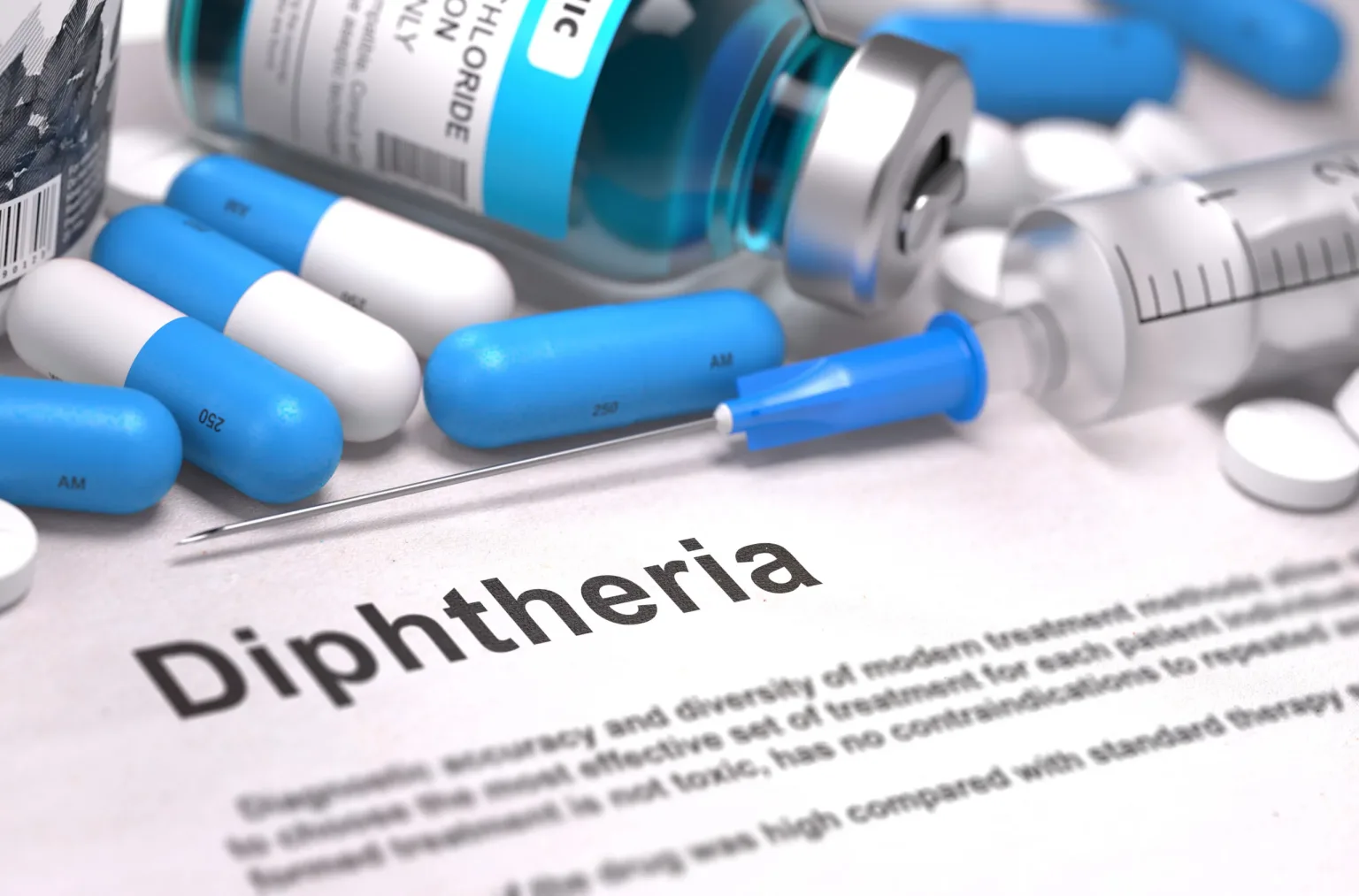Diphtheria, a potentially life-threatening infection caused by the bacterium Corynebacterium diphtheriae, has been a public health concern for decades.
Understanding the signs, symptoms, and treatment options for this disease is crucial in safeguarding our communities against its resurgence.
Join our WhatsApp ChannelThe onset of diphtheria symptoms usually occurs within 2 to 5 days after exposure to the bacteria. The severity can vary, ranging from mild cases to more severe manifestations.
The initial symptoms often include a sore throat and fever, which may be mistaken for common respiratory tract infections.
In severe cases, this patch can obstruct the airway, leading to breathing difficulties and swallowing challenges, accompanied by a barking cough.
READ ALSO:COVID-19: Nigeria Records 48 New Cases In 13 Days
The neck may also experience swelling, mainly due to enlarged lymph nodes in response to the infection. The toxin produced by the Corynebacterium diphtheriae is the main culprit behind the complications associated with diphtheria.
If it enters the bloodstream, it can trigger inflammation and damage to the heart muscle, a condition known as myocarditis. Additionally, nerves may become inflamed, leading to paralysis in some instances.
Diphtheria spreads easily between people through direct contact or respiratory droplets, which can occur when an infected person coughs or sneezes.
Contaminated clothing and objects can also play a role in transmitting the disease, making prevention and early detection vital in controlling its spread.
Diagnosing diphtheria often involves identifying the telltale greyish membrane covering the throat. However, to confirm a suspected case, laboratory investigations are recommended.
Nevertheless, immediate treatment is essential to prevent further complications. Managing diphtheria requires a two-pronged approach: administering a diphtheria antitoxin, which can be given intravenously or through an intramuscular injection, and prescribing antibiotics to eliminate the bacteria and halt toxin production.
This dual approach not only helps the infected individual but also reduces the risk of transmission to others. Preventing diphtheria is primarily achieved through vaccination. Routine immunization with the diphtheria-tetanus-pertussis (DTP) vaccine is highly effective in protecting individuals from this infectious disease.
Maintaining high vaccination coverage in communities can create herd immunity, reducing the overall risk of outbreaks.













